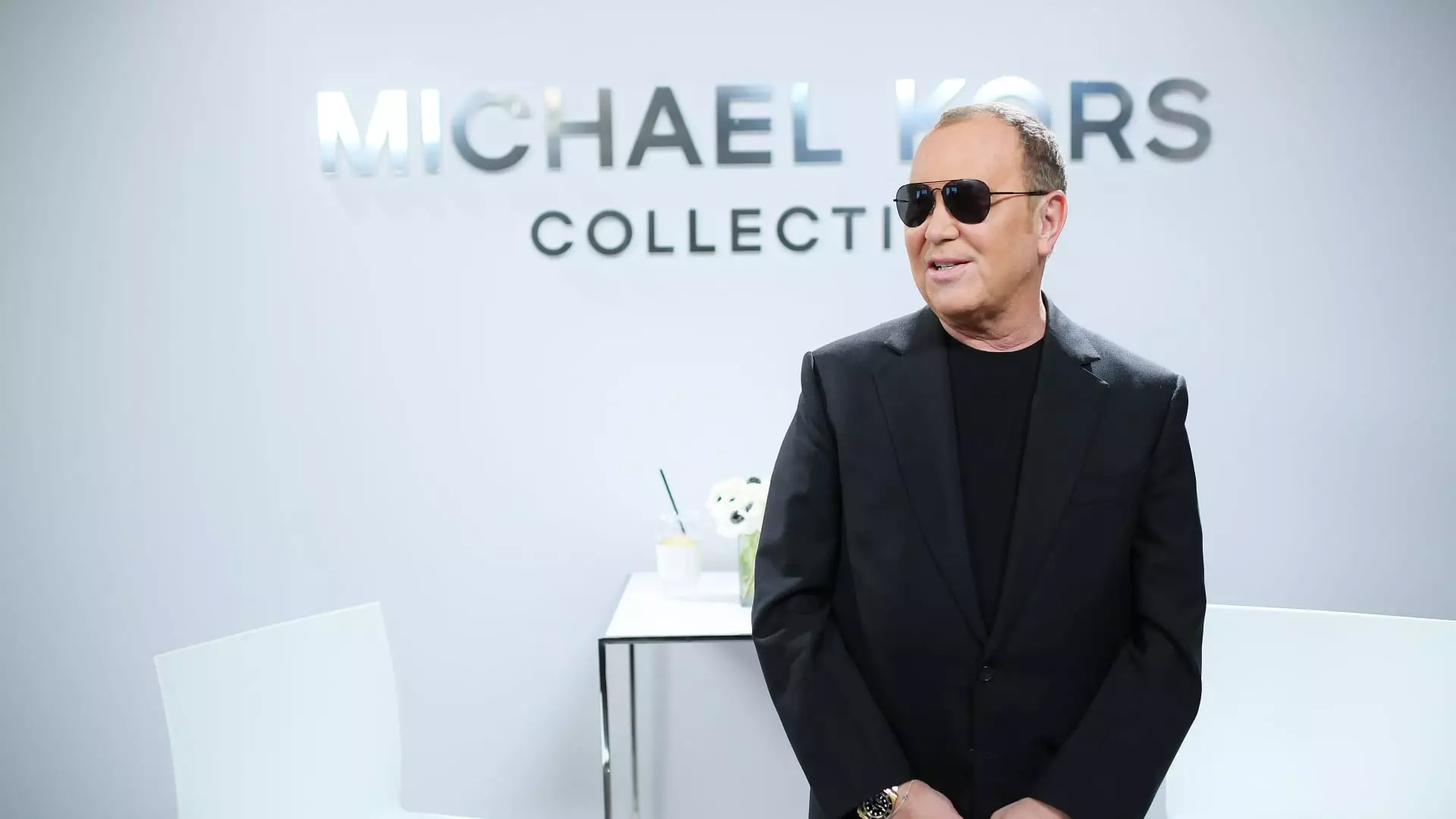In the fast-paced world of fashion, staying at the forefront is no longer guaranteed, even for renowned icons like Michael Kors. Recently, Kors took the stand in a Manhattan federal courtroom, discussing the precarious nature of brand popularity in an age dominated by social media influencers and viral trends. This comes amid an antitrust trial initiated by the Federal Trade Commission (FTC), which seeks to prevent Tapestry’s $8.5 billion acquisition of Capri Holdings, the parent company of Kors’ fashion brand. The implications of this merger could reshape the landscape of the luxury handbag market, further complicating the already intricate relationship between brand reputation and consumer interest.
Kors poignantly captured the essence of this volatile market, stating, “Sometimes you’ll be the hottest thing on the block. Sometimes you’ll be lukewarm. Sometimes you’ll be cold.” As a founder who has been in the trenches since 1981, this admission reflects not only the struggles faced by his brand but also highlights a broader truth: the cyclical nature of fashion trends. Kors acknowledged that his own brand has encountered periods of stagnation, leading to what he described as brand fatigue. In doing so, he highlighted a fundamental truth of the fashion world – the need for constant evolution and innovation amid shifting consumer preferences.
Social media has undeniably changed the rules of engagement. With platforms like TikTok becoming launchpads for new trends, brands can soar to instant fame or suffer an equally rapid decline. During his testimony, Kors provided a stark example of this phenomenon when he recounted discovering a new handbag brand, Aupen, after seeing pop superstar Taylor Swift sporting one. The overwhelming demand caused Aupen’s website to crash, a telling indication of the influence that celebrities wield in the fashion sector. Kors’ remarks underscore how quickly consumer attention can pivot, often leaving established brands scrambling to reposition themselves.
This changing tide has not gone unnoticed by the FTC as it deliberates the consequences of Tapestry’s proposed acquisition. The agency argues that consolidating major brands under one corporate umbrella could lead to reduced competition and higher prices for consumers. Critics of the merger worry that the symbiosis of brands such as Coach and Michael Kors could stifle creativity and diminish product quality, leaving shoppers with fewer choices and less value. However, Tapestry and Capri’s representatives have countered that the current environment is characterized by robust competition, as shoppers explore not just luxury options but also budget-friendly alternatives and secondhand marketplaces. As today’s consumers are more discerning than ever, this contrasting viewpoint raises essential questions about the future of the luxury market.
Interestingly, the economic backdrop for Kors’ testimony paints a sobering picture for luxury brands. Capri Holdings has experienced a notable decline in its stock value, reflecting broader consumer hesitance towards high-priced items amid economic uncertainty. In recent financial reports, Michael Kors’ revenue saw a significant drop of over 14% compared to the previous year, highlighting the ongoing challenges faced by established brands in maintaining profitability. This downturn serves as a reminder that even iconic names in fashion are not immune to the effects of consumer sentiment and market dynamics.
Former Macy’s CEO Jeff Gennette’s testimony added further dimension to these challenges. He linked the waning prestige of certain brands, like Michael Kors, directly to declining sales within department stores. As retailers bear the brunt of fluctuating brand appeal, the ongoing trial and potential acquisition are not merely corporate maneuvers, but pivotal events that could dictate the future direction of the luxury retail landscape.
As Kors himself illustrated, even established industry veterans must remain vigilant and adaptable to thrive. The fashion industry does not reward complacency; it demands innovation, an understanding of consumer desires, and a willingness to embrace new trends. For Kors, this means continuing to search for inspiration and rethinking strategies to connect with a modern customer base. In an environment where brands are often only as relevant as their latest Instagram post, the delicate balance of brand heritage and newness has never been more crucial.
Moving forward, the outcomes of antitrust negotiations, shifting consumer attitudes, and the implications of social media influence will shape the future of fashion. Brands like Kors may have to harness the power of their rich histories while simultaneously reinventing their identities to remain relevant. The ongoing drama surrounding the Tapestry-Capri acquisition is but a chapter in the ever-evolving saga of fashion, where survival depends on the ability to adapt to the winds of change.


Leave a Reply